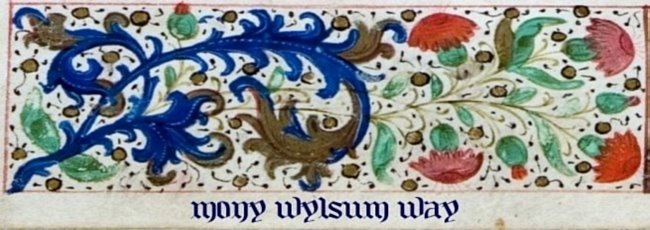This quote started me musing:
"The word Puritan is an essential engine [of the attempt to push English religion towards conformation with Rome] ... For this word in the mouth of a drunkard doth mean a sober man, in the mouth of an Arminian, an Orthodox man, in the mouth of a papist, a Protestant. And so it is spoke to shame a man out of all religion, if a man be ashamed to be saved."
Francis Rous, in an address to the Short Parliament of 1640.[1]
But wasn't this exactly what 'papist' was used for in the century leading up to the civil war? How do you discard an entire belief system at once? You don't, of course - you cling to some parts of it and gradually work out which bits you want to maintain, as a community - but you don't work as a community, you work as a set of individuals, pulled back and forth by individual preferences and the cacophany of different voices and conflicting systems flying about the place from different parts of Europe. And the printing press, of course, increased exponentially the number of voices that could be heard. So if a country is coming gradually to define our kind of Protestantism, it has to do so while taking all these voices into account, choosing which to listen to. And there is virulent argument, of course, and a word like 'papist' can be applied to whatever you choose to associate with the wrong-headed old way of doing things - vestments, ceremony, ideas about methods of salvation, or, if you're so inclined, anything that does not conform with the most strict ideas of predestination. Your path is defined by away - true godliness is to move away from papism, rather than any clear towards.
But you can only go in one direction for so long. No one wants to live absolutely without ceremony or tradition (certainly not Charles I), and eventually you do need some kind of power hierarchy in the church. And you will never persuade an entire population to live permanently in a state of personal ethical purity, rather than just going along to the ceremony once a week and living fairly normally the rest of the time. So you set up a limit in that direction too - the Puritan, an idea to be regarded with almost as much revulsion as the papist. Perhaps more - after all, at least initially, it's closer to home, and you run more risk of attracting the same accusation yourself, until you work out just what it is and move away from that label too.
And now your identity rests somewhere in between, defining yourself as definitely-not-Puritan and definitely-not-papist as the need arises, and applying the closest word to anything inappropriate that comes along which you ferociously do not want to be us.
[1] Esther S. Cope and Willson H. Coates (eds), Proceedings of the Short Parliament of 1640, Camden 4th series 19 (London 1977), 147. Cited in Michael Braddick, God's fury, England's fire: A new history of the civil wars (London: Penguin, 2008), 49.


.jpg)


No comments:
Post a Comment